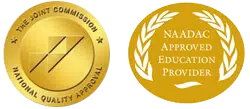Stimulants are psychoactive drugs that increase activity in the central nervous system. Composed of the spinal cord and the brain, the central nervous system reacts to the ingestion of stimulants by releasing a surge of dopamine and norepinephrine in the brain. These two neurotransmitters regulate energy levels, mood, thought processes, and appetite. Excess levels of dopamine and norepinephrine produced by taking stimulants make users feel euphoric, excitable, unusually energetic, and manic. Abusing stimulants can also cause short-term side effects such as:
- Paranoia
- Tachycardia (rapid heartbeat)
- Anxiety and panic
- Shortness of breath
- Heart arrhythmia
- Insomnia
- Diminished appetite
- Disorientation/delusions
The long-term effects of abusing stimulants are much more severe and often irreversible. Illegal stimulants such as cocaine and methamphetamine cause the most damage to a person’s physical and mental health. Addiction to cocaine and meth occurs rapidly due to the immediate “rush” of euphoria and well-being after smoking, snorting, or injecting cocaine or meth.
10 Dangers of a Methamphetamine Addiction
- Extreme weight loss/malnutrition
- Tooth loss/gum infections (meth addicts crave sugary foods and drinks)
- Protracted insomnia that leads to paranoia and psychotic episodes
- Intensely itching skin due to overactive nerves leads to constant scratching and skin sores that do not heal
- Changes to brain function and structure causing memory loss, inability to distinguish reality from delusion, and early onset dementia
- Visual hallucinations (excess dopamine is known to induce hallucinations)
- Increased risk of contracting HIV/AIDS, sexually transmitted diseases, and serious infections that could be life-threatening
- Kidney, liver, and/or heart failure
- Permanent, severe tremors
- Brain damage/coma/death
For meth addicts who seek treatment in time, some side effects may be reversible after a period of abstinence. However, studies suggest that all meth users have an increased risk of developing Parkinson’s disease or other neurological disorders.
10 Dangers of a Cocaine Addiction
- Destruction of nasal tissues/deviated septum (snorting cocaine reduces blood flow to the nasal passages)
- Tachycardia/arrhythmia/heart failure
- Muscle twitching/tremors
- High blood pressure/risk of stroke
- Skin infections due to reusing needles (if the addict injects cocaine)
- Collapsed veins/scarring of veins/circulatory disease
- Respiratory distress/high risk of pneumonia (when cocaine is regularly smoked)
- Experiencing manic episodes that lead to imprisonment, bankruptcy, homelessness, etc (cocaine abusers tend to gamble large sums of money, commit crimes due to their addiction, and steal from family and friends)
- Permanent brain damage (early onset dementia, cognitive decline, psychosis)
- Seizures/coma/death
Prescription Stimulants
Abusing prescription stimulants like Adderall, Dexedrine, Ritalin, or Concerta is just as dangerous to your long-term health as illegal stimulants. Although prescription stimulants work well to relieve symptoms of ADHD and narcolepsy, abusing them causes the same, long-term side effects associated with a meth or cocaine addiction.
Are Club Drugs Considered Stimulants?
MDMA (ecstasy) has stimulant and empathogenic properties that both stimulate and relax the user’s nervous system. However, most club drugs are classified as strictly psychoactive substances that induce euphoria, increase empathy, enhance sensations, and alter a person’s sense of time. Consequently, the long-term effects of club drugs differ from the dangers of true stimulants.
For more information about getting help for a stimulant addiction, please contact Baystate Recovery Center today by calling 855-887-6237.
Baystate Recovery Center, a clinically Infused 12-Step Treatment Center for Drug and Alcohol Addiction, was founded by two partners in addiction treatment services, John Checchi and Michael Wilson.



